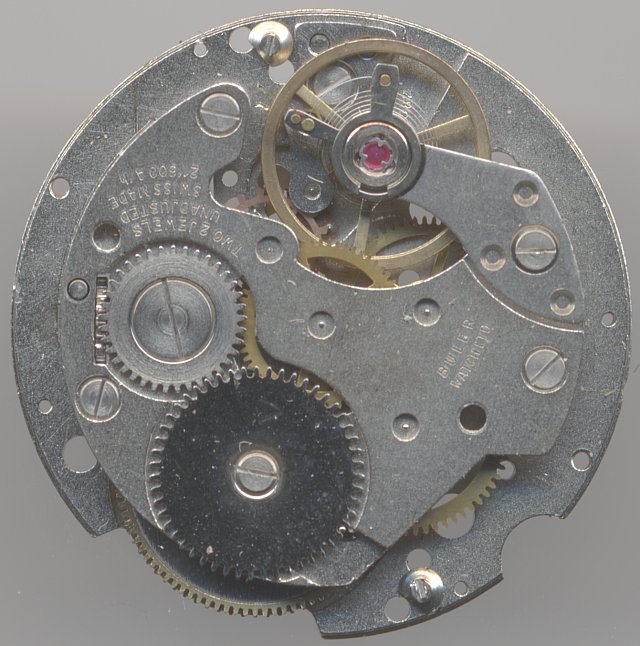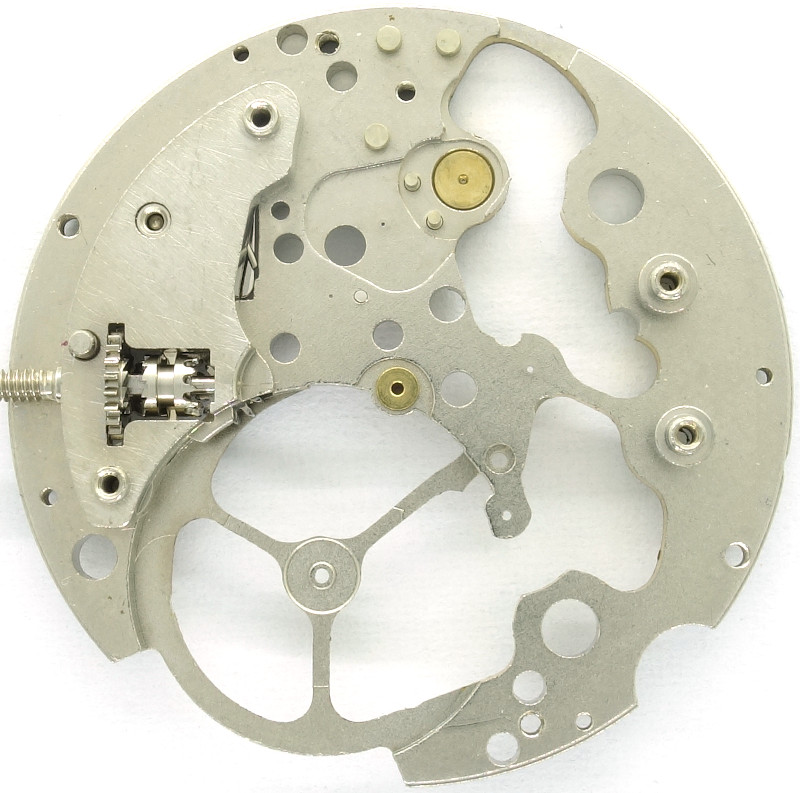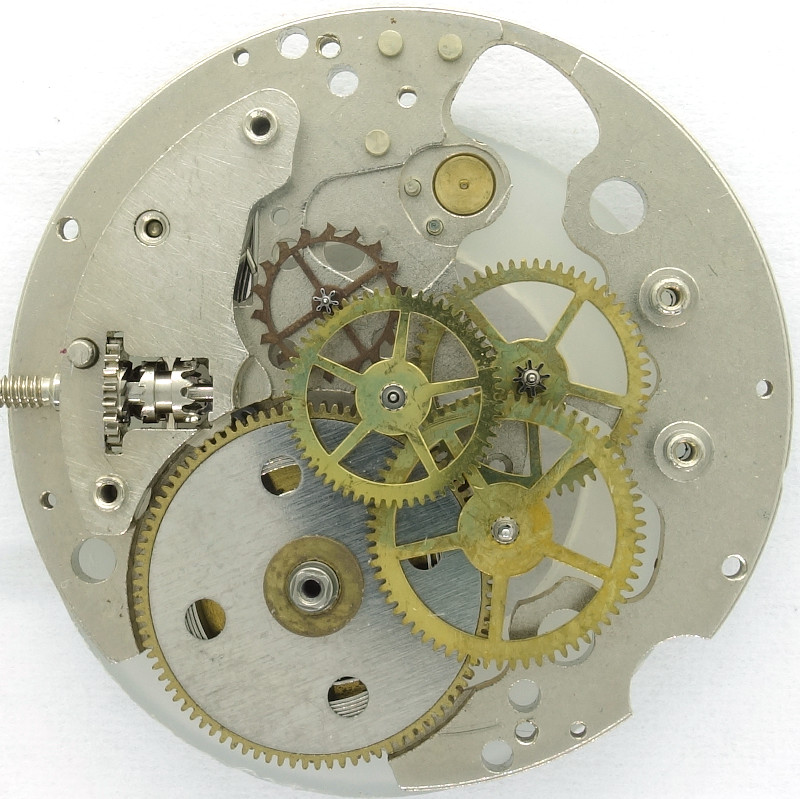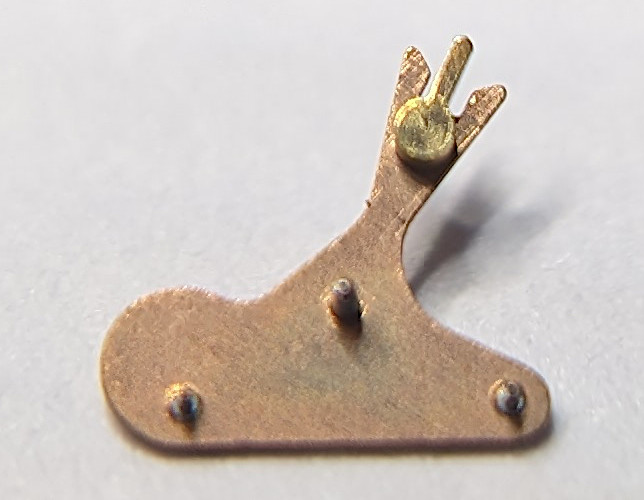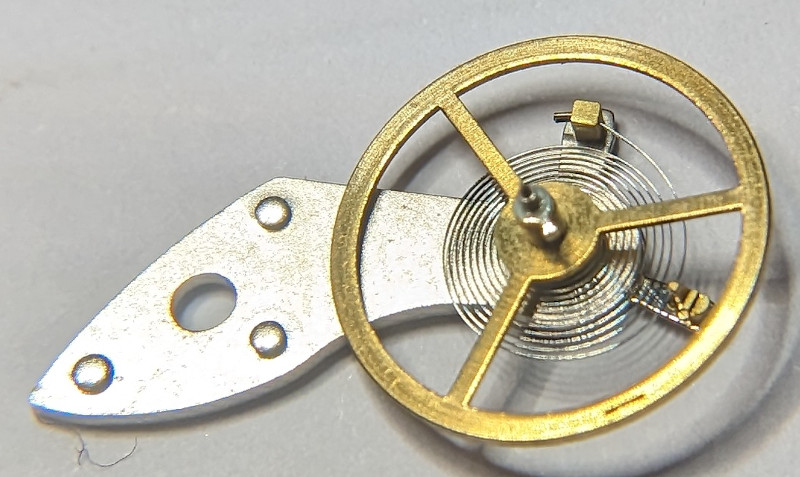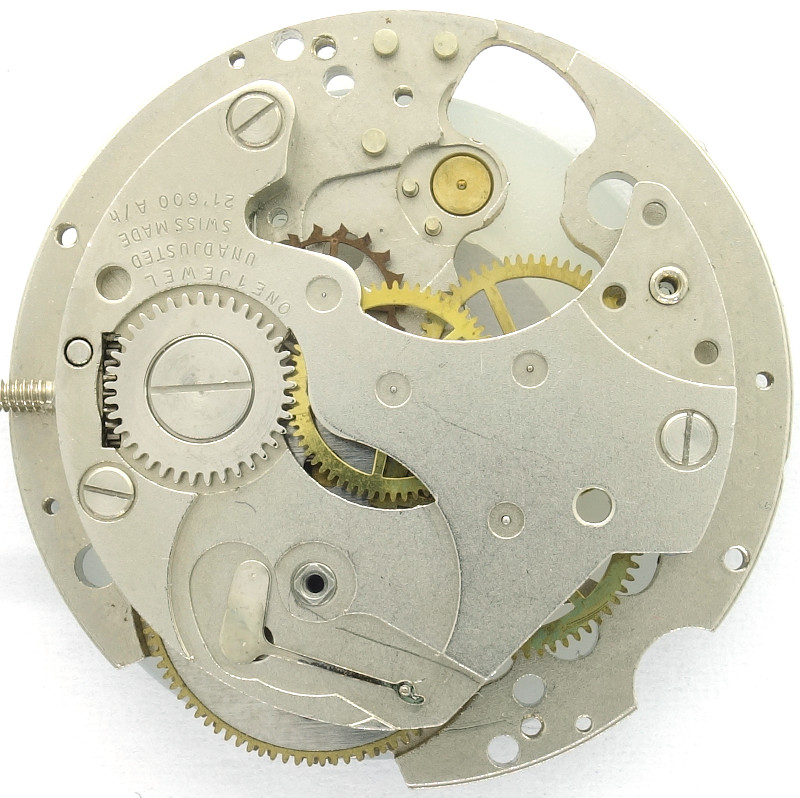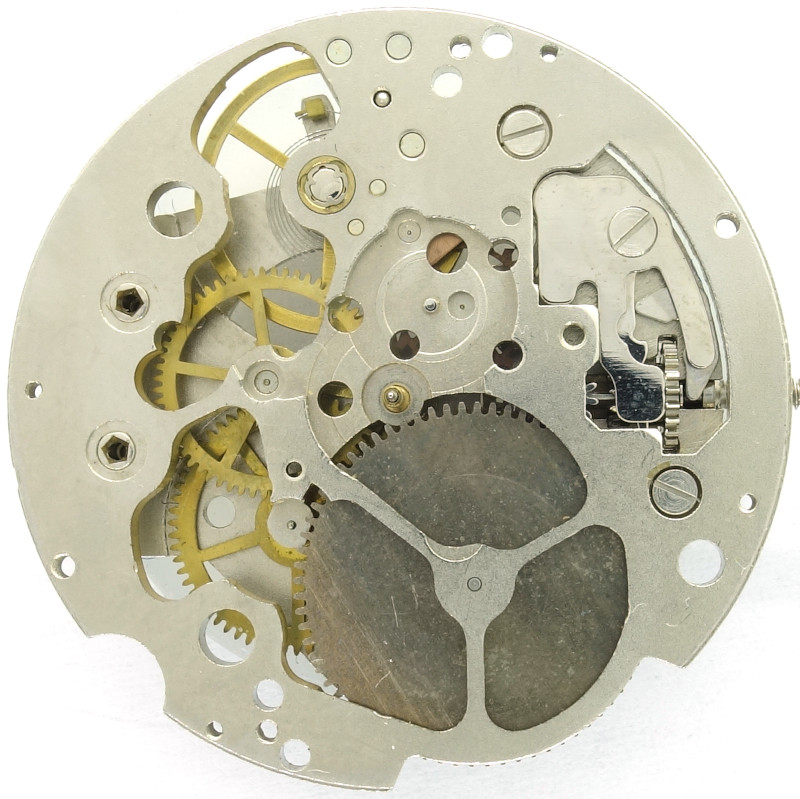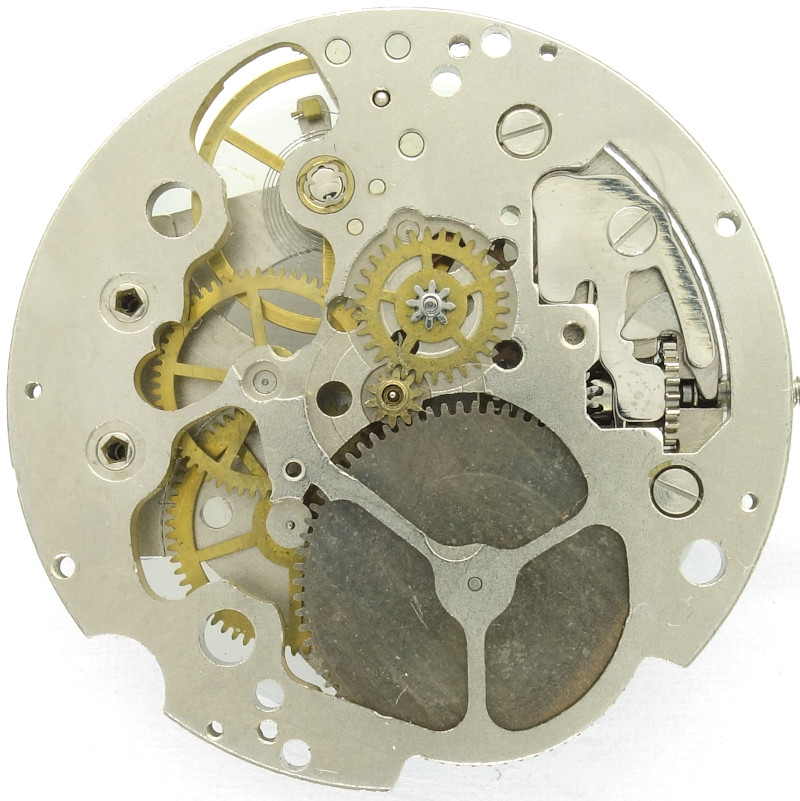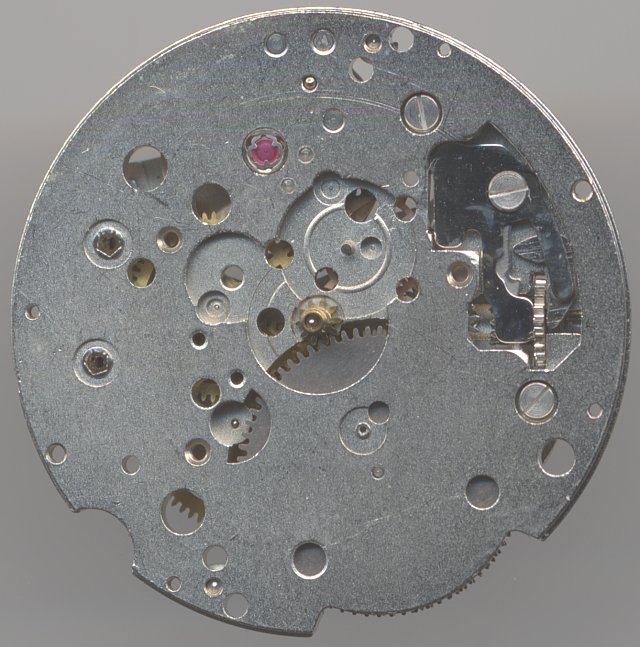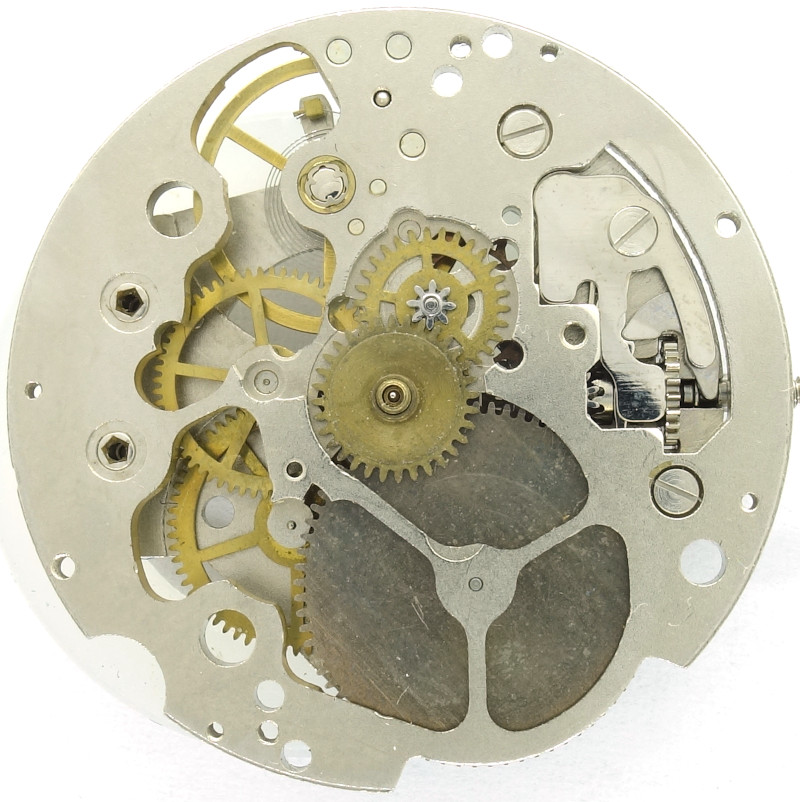Description
A rather late pin lever movement, probably from the mid 1970s, is the modern constructed caliber Baumgartner 582 with a Roskopf-like way of construction. It was available in different versions, which helped Baumgartner to survive the quartz crisis at least until the shutdown in 1982.
Here is the base version, which shows only hours, minutes and seconds, and whose base plate has got the smaller diameter of 12 1/2 lignes.
This caliber was also available in a skeletonized version.
In terms of execution, there’s not much to find, the base version has got only one single cap jewel, the one of the movement-side, visible balance wheel bearing. All other bearings and cap “jewels” are made of steel only.
The gear train is pretty much similar to that of a Roskopf pin lever movement, only the directly driven center seconds wheel is atypical for a true Roskopf movement.
The mainspring barrel, on whose lower side, the driving wheel for the hands is attached with a slipping clutch, drives the second wheel, followed by third wheel, center seconds wheel and escape wheel.
We have a pin lever escapement here, regulated by a balance wheel either with a finger (as seen here), or with an ellipsis. The “finger” version has got the finger on the pallet fork on its top, otherweise, it is located on its bottom.
In all versions, the Baumgartner 582 uses a modern, three-leg anular balance, which is even shock protected.
On the version shown here, you can see the finger of the balance.
The ratchet is as simple as genious, it consists of only one single part, the ratchet with attached spring. It is located in a recess beyond the ratchet wheel.
When the cannon pinion is not yet mounted, you can see the lower driving wheel of the mainspring barrel on the dial side.
Unlike on a true Roskopf movement, we have a changer wheel here to drive the hour wheel.
On a true Roskopf movement, both wheels, cannon pinion and hour wheel would be driven by a double driving wheel on the mainspring barrel.
There exists also a version with 2 jewels, on which, the dial side cap jewel for the balance bearing is a ruby, too.
The simple, but efficient yoke winding system can be seen on the dial side.
In the lab
Since the adjustment was terrible (+10 minutes deviation per day and a beat error of more than 3ms), it was afterwards properly adjusted.
Timegrapher result
You can see here, that also pin lever movements can perform well on the timegrapher, implied that you adjust them yourself.| horizontal positions | |||
|---|---|---|---|
| dial up | +10 s/d | 236° | 0.2ms |
| dial down | +15 s/d | 233° | 0.2ms |
| vertical positions | |||
| crown right (12 up) | -8 s/d | 189° | 0.1ms |
| crown up (3 up) | -5 s/d | 205° | 0.3ms |
| crown left (6 up) | -3 s/d | 190° | 0.6ms |
| crown down (9 up) | +-0 s/d | 187° | 0.5ms |
Technical data
| Manufacturer: | Baumgartner |
| Caliber: | 582 |
| Caliber base: | Baumgartner 582 |
| Size: | 12 1/2''' (measured: 27,6mm) |
| A/h: | 21600 |
| lift angle: | 40° |
| Number of jewels: | 1/2 |
| Escapement: | Pin lever |
| Balance types: | monometallic anular balance (three legs) |
| Shock protection(s): | KIF Trior |
| Balance bearing / direction hairspring: | Counterclockwise |
| Moveable stud: | yes |
| Adjust mechanism: | Hairspring key |
| Construction: |
|
| Construction type: | pillar construction |
| Winding mechanism: | yoke winding system |
| Setting lever spring: | 1 hole |
| Attachment of setting lever: | plugged |
| Features: |
|
| Inventory number: | 23063 |
